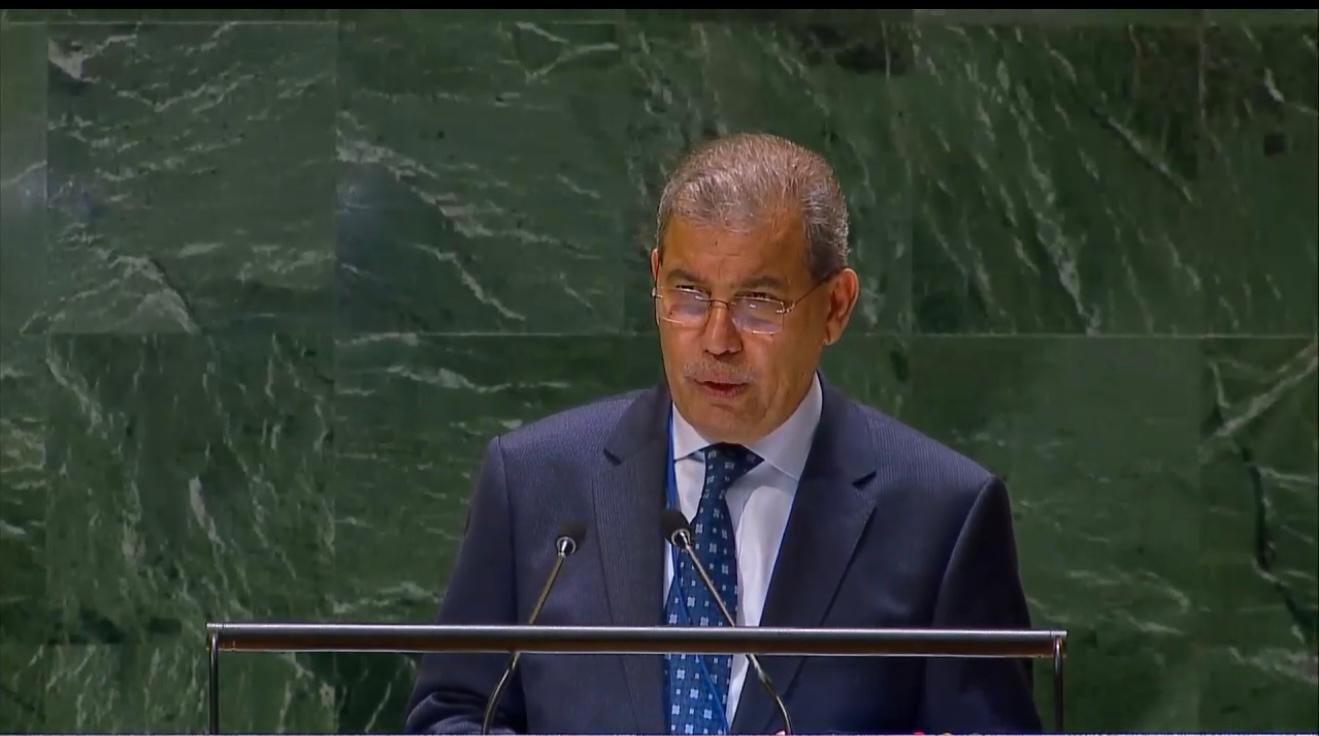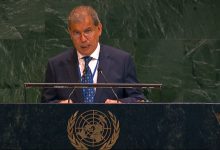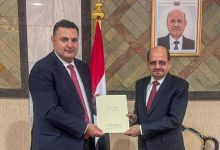Yemen urges the international community to support the resumption of oil and gas exports to stabilize its economy.

Yemen’s Government Calls for International Support to Resume Oil and Gas Exports
The Yemeni government has renewed its appeal to the international community and the United Nations Security Council for assistance in finding viable methods to resume oil and gas exports. This initiative is crucial for achieving stability and economic recovery, enabling the Yemeni people to benefit from their natural resources while reducing reliance on external economic and humanitarian aid.
Addressing the Security Council
This call to action came during a speech delivered by Yemen’s Permanent Representative to the United Nations, Ambassador Abdullah Al-Saad, at an open Security Council session focused on the situation in the Middle East, particularly Yemen.
The Impact of Houthi Threats
In the statement, the Yemeni government highlighted the ongoing threats posed by Houthi militias, which are backed by the Iranian regime. The continued halt of oil and gas exports exacerbates the catastrophic consequences for the Yemeni community, worsening economic and humanitarian conditions, disrupting essential services, and limiting the livelihoods of Yemenis.
Gratitude for Regional Support
The Yemeni government expressed profound gratitude to Saudi Arabia and the United Arab Emirates for their unwavering support during challenging times. Their developmental and humanitarian interventions play a vital role in helping the Yemeni government meet its obligations and alleviate the suffering of its people.
Efforts Toward Comprehensive Reforms
Ambassador Al-Saad emphasized that the Yemeni government is making significant efforts to implement comprehensive reforms. These reforms aim to address substantial challenges in economic, financial, administrative, and humanitarian sectors. The government is committed to enhancing governance, promoting transparency, and combating corruption to achieve economic stability and improve living conditions for citizens. However, the government faces severe challenges due to a sharp decline in public revenue, which is essential for the state budget.
Economic Consequences of Houthi Actions
The ambassador pointed out that Houthi attacks on oil export facilities have severely disrupted Yemen’s most critical economic sector. Oil exports account for approximately 90% of total merchandise exports and 80% of the state budget’s revenue. The cessation of oil and gas production has deprived the government of crucial foreign currency inflows, which are vital for financing imports and stabilizing the exchange rate.
Threats to Public Services
The decline in public resources threatens the government’s ability to fulfill its financial commitments, particularly regarding public services like electricity and employee salaries. The impact of halted oil exports extends beyond financial losses, estimated at around $7.5 billion since October 2022. It has also led to a depreciation of the national currency, diminishing the government’s capacity to intervene in currency markets and provide essential services.
Commitment to Peace and Stability
The Yemeni government, along with the Presidential Leadership Council, remains committed to ending the war and achieving a comprehensive and lasting peace based on agreed political references, including UN Security Council Resolution 2216. However, Ambassador Al-Saad lamented that regional and international efforts, including those by the UN, have faced obstinacy from the Iranian-backed Houthi militias, which have consistently undermined peace initiatives.
Houthi Violations and Humanitarian Crisis
The ambassador criticized the Houthis for prolonging the conflict and deepening the suffering of the Yemeni people. He noted that the militias have turned Yemenis into tools for their destructive agendas, disregarding the nation’s rich history and culture. The ongoing economic blockade, targeting oil facilities, and hindering humanitarian aid exacerbate the crisis.
Responsibility for Destruction
The Yemeni government holds the Houthi militias fully responsible for the destruction of the nation’s resources and infrastructure. The ongoing conflict has jeopardized the lives and livelihoods of Yemenis, drawing the country into endless wars and inviting international repercussions.
Call for International Action
Ambassador Al-Saad reiterated the call for the Houthis to embrace peace, prioritize national interests, and abandon their destructive Iranian agenda. He urged the international community to classify the Houthis as a foreign terrorist organization due to their threats to regional and global stability.
Urgent Need for Humanitarian Support
The ambassador highlighted the urgent need for humanitarian assistance, especially as the economic and humanitarian situation deteriorates. Millions of Yemenis face severe risks due to rising needs and insufficient funding for essential services like food and healthcare.
Protecting Vulnerable Populations
Women and children are among the most affected by the conflict, facing unprecedented violations, including abduction and sexual violence. The ambassador called for enhanced international support to address these issues and improve the humanitarian response in Yemen.
Conclusion
In conclusion, while acknowledging the efforts to alleviate humanitarian suffering, the Yemeni government urges the international community to strengthen support for humanitarian initiatives and close the existing funding gaps. The situation in Yemen remains dire, and immediate action is essential to prevent further deterioration.
To follow the news in Arabic


